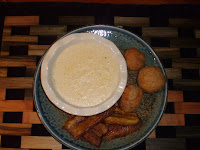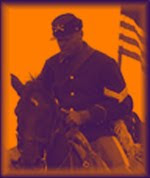and Fields of Cotton and Tobacco…
Gunga, yes and Black Eyed Peas…. From Charleston to Kingston Harbor.
Two dimensions of a single Diaspora that have so very much in common…and yet, they’re nothing alike. So what’s up with that?
It’s a question I ask myself all the time, and one that surfaces frequently in my writing projects. One example being a previous post in which I tackled the subject of Double Consciousness: That extra baggage many Black Americans carry around which forces us to constantly manage an awareness of our personal identities – identities that have been qualified in terms of what the ‘majority’ culture thinks it means to be Black in America. My intent was to explore the cumulative effect of Double Consciousness on the contemporary Black American experience, and how that influence might factor into our political and social discourse during the age of Obama. As a child I definitely felt it; as a young Elementary and Middle School student who was the first person of color to ever attend my school. I was a kinky-haired, Brown-skinned Island in a sea of Pink and White faces; a young Protestant unexpectedly thrown into what was for me, a strange and unfamiliar world of Incense, Holy Water and Rosary-beaded Catholicism. And yet somehow I managed to survive with my identity and self confidence mostly intact; imbued (I would like to believe) with the same instincts for survival that strengthened and sustained my parents and grandparents before me. At that point in my life, I’d never heard of Double Consciousness, and I’m not sure I would have had the capacity to understand the essence of Dubois’ original argument if I had. But all these years later, with the benefit of life’s challenges and character building experiences, I can look back on that period and comprehend beyond the shadow of a microscopic doubt, that it was my burden of Double Consciousness that made my journey into adolescence all the more difficult, and established the emotional and psychological frame of reference for my subsequent interactions with the Caucasian world.
&
Since initially tackling the subject, I keep coming back to what it means, and just exactly how I feel about it. Now, having benefited from the passage of time and by adopting a more nuanced perspective, I feel compelled to revisit the topic in light of a recent (and purely accidental) revelation that came to me earlier this year. While watching a PBS/Masterpiece Theater presentation of Sandra Levy’s Small Island, I was struck by one scene in particular that for me, encapsulated the difference between how Black Americans have traditionally viewed themselves and their place in the world, verses persons of color who have emigrated from the Caribbean Islands. Small Island overtly promotes an exploration of racism and racial identity; but beyond the Black-White, Colonizer-Colonized dichotomies, I tuned in to a more subtle (and I imagine unintended) message emanating from Ms. Levy’s dialogue and plot. Gilbert - a Jamaican RAF volunteer in London during the Second World War - attempts to enter the Cinema with a British Woman (Queenie) with whom he’s recently developed a friendship (Queenie has scandalized her neighbors by renting Gilbert a room). Without hesitation, the young man approaches the main-floor entrance with the intention of purchasing his ticket. Incensed by his blatant disregard for what they view as the prevailing rules of social engagement, a group of White Soldiers voice their displeasure, strongly suggesting that the young soldier needed to move his ass over to the colored line. In the face of this challenge, the Jamaican Soldier immediately argues that (a) he isn’t a Black American; (b) They were not in America, and (c) he was free to move about as he damn well pleased etc. etc. I’m paraphrasing here because I don’t exactly remember how Gilbert formulated his response, but for the most part that was the uncompromising position he chose to stake out. I remember perking up at this point, struck by Gilbert’s choice of words, and curious about what was going to happen next. Unburdened by the albatross of Double Consciousness, and (I would argue) incapable of identifying with American standards of Jim Crow social stratification, Gilbert never even stopped to consider the possibility that access to a certain venue might be denied him.
&
Of course, Gilbert’s character represents a populace undoubtedly affected in other ways by the lingering influence of colonialism that continues to shape relations between the Crown and her former Jewels; but on the specific question of American-style segregation, Gilbert the Jamaican had never become psychologically invested in the notion that his choices or movements would in any way be limited. Most interesting for me, is how Gilbert does not hesitate to differentiate himself as not American when addressing the White Soldiers, while nearby, a group of Black American GI’s (waiting in the Colored line), shift uncomfortably and began moving towards the commotion; anger and solidarity (with a brother who is being abused) evident in their postures and facial expressions; this, after the Good Ol’ Boys contemptuously hurl a couple of N-Bombs in Gilbert’s direction.
&
The scene marks a critical juncture in the film, and in my opinion also serves as a metaphor for various pockets of misunderstanding that sometimes manifest across segments of the Black American and Jamaican social continuum…and it is here that I’ve purposely chosen to speak in terms of Jamaican Blackness in the larger context of how it is generally regarded in America, because therein lies the root of much unnecessary conflict that sometimes crops up between Black Americans and our Afro-Caribbean cousins. As you can imagine, this is a compelling topic for me, and something I’m eager to cover in more detail. In a future post, I’ll explore some of the cultural and historical determinants that have contributed to those ‘pockets of misunderstanding'; why American and West Indian Blacks view the world through such a different contextual lens and what those differences mean for the state of ongoing relations in America and abroad.
&
An observation…from a Yank’s perspective.



